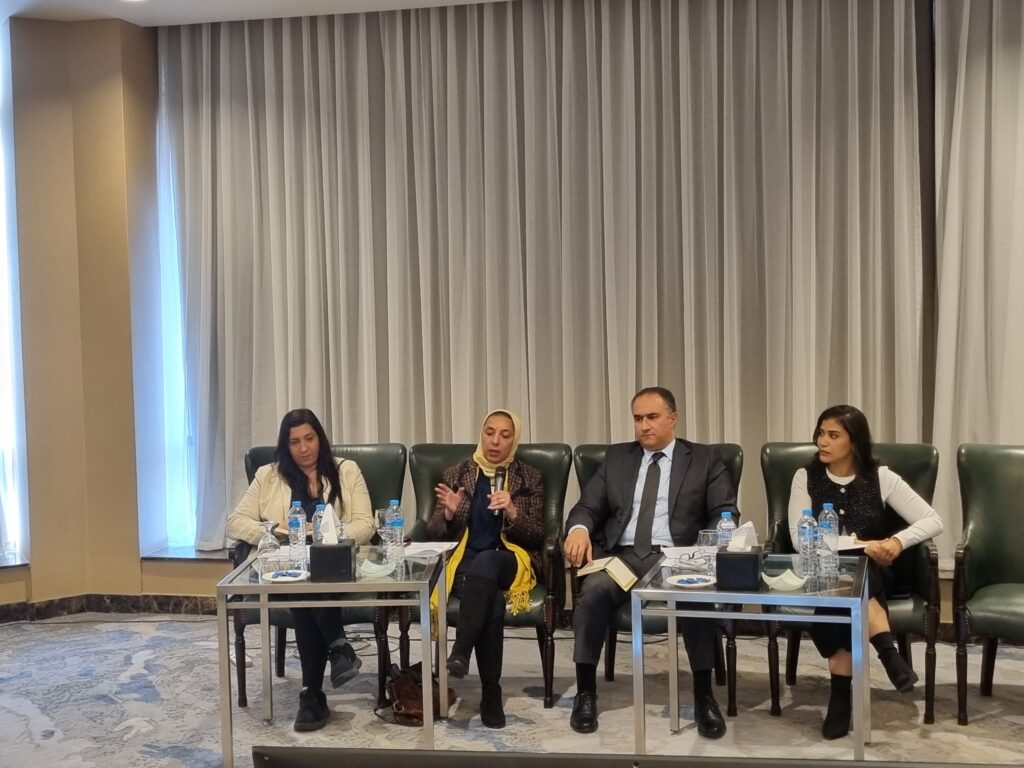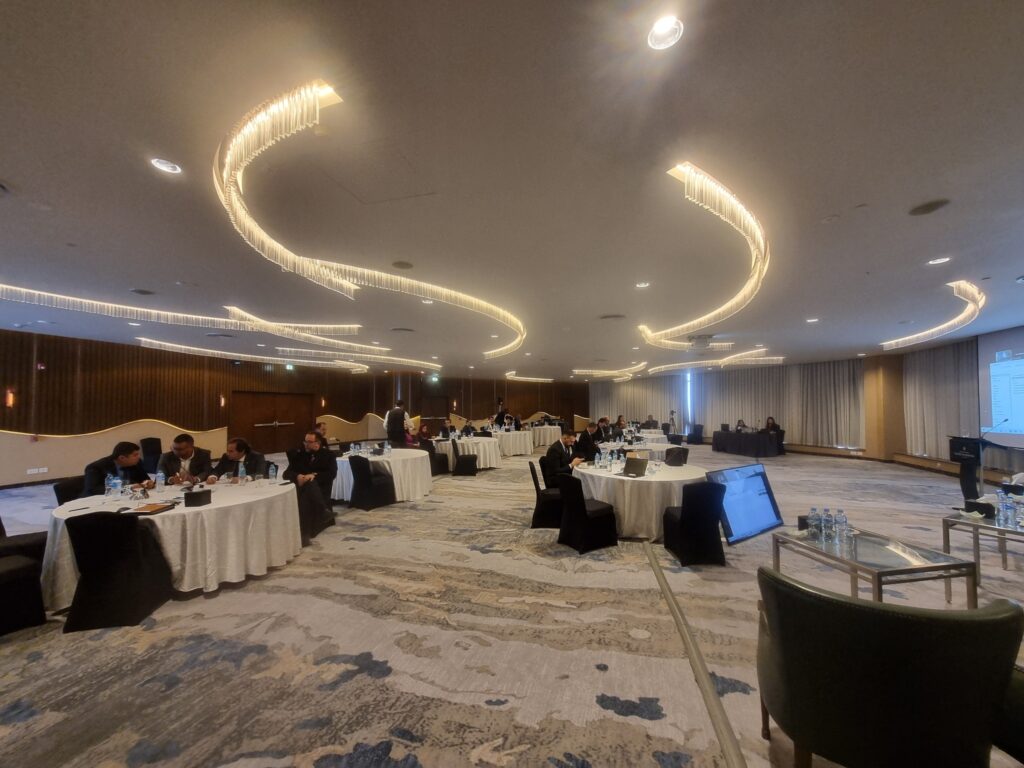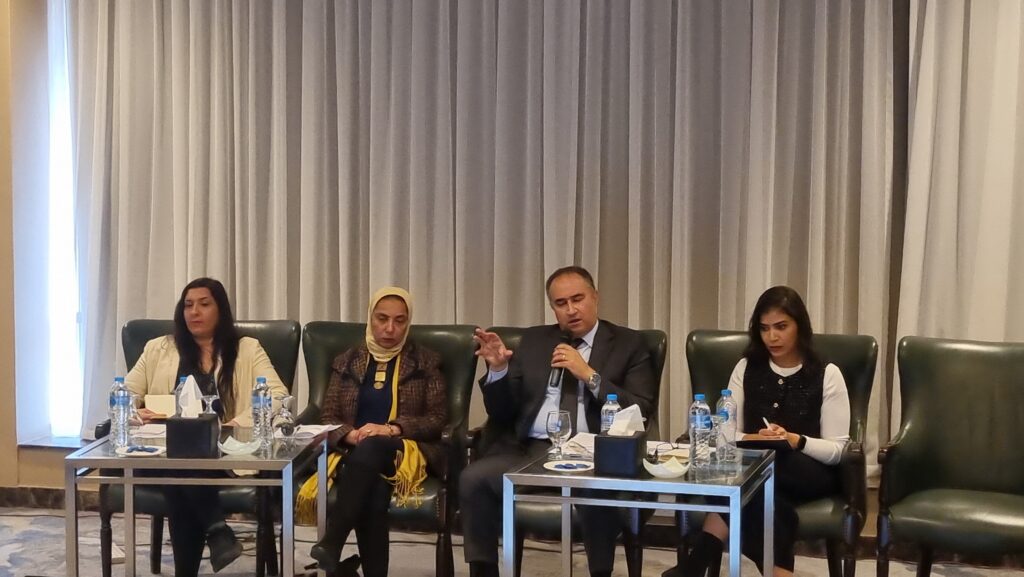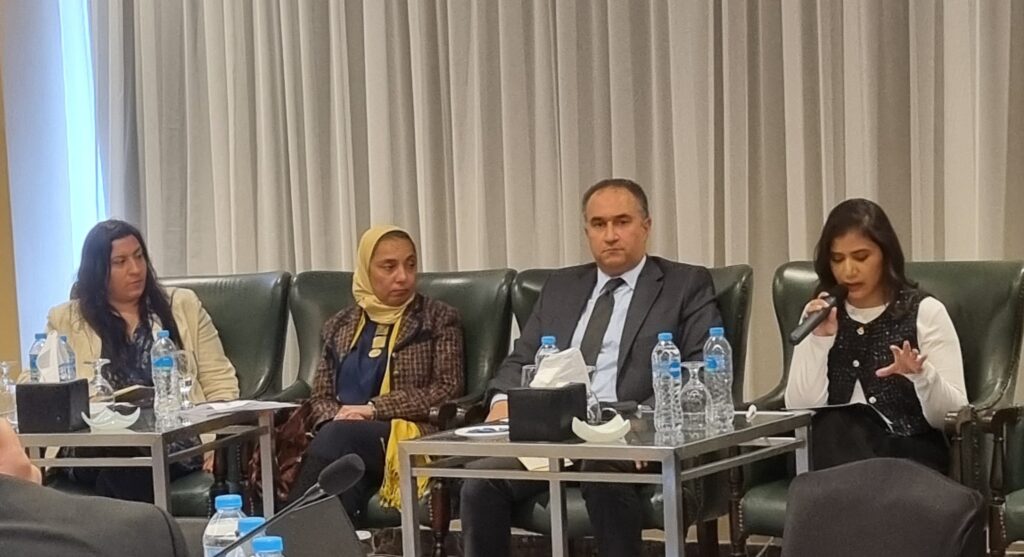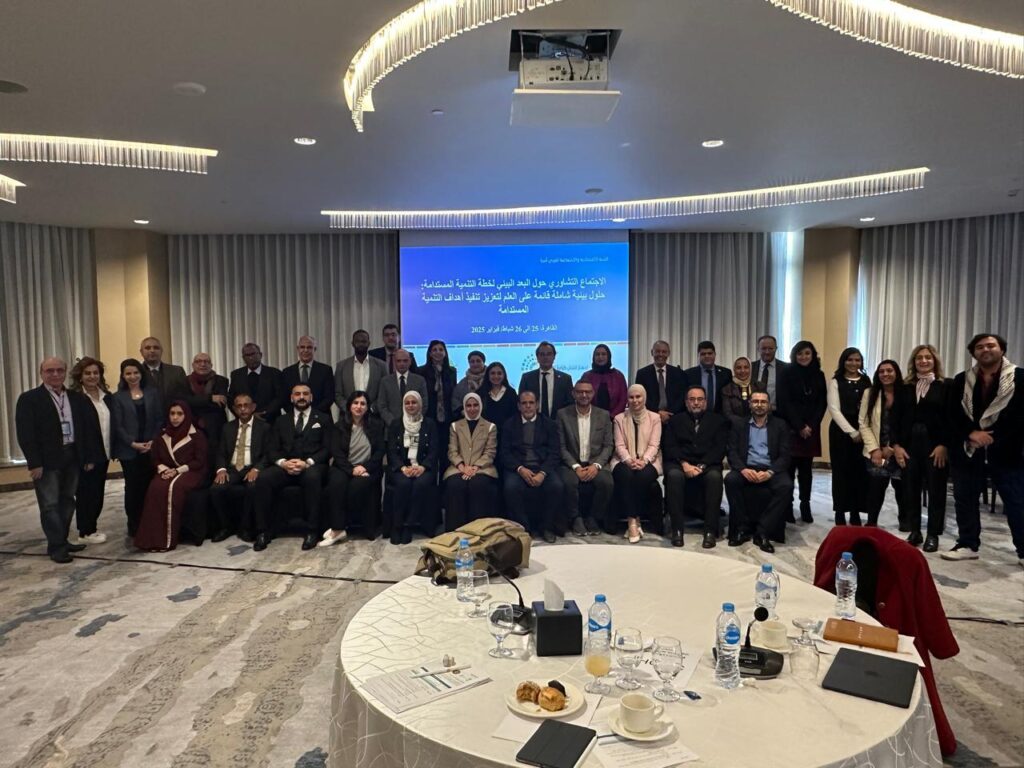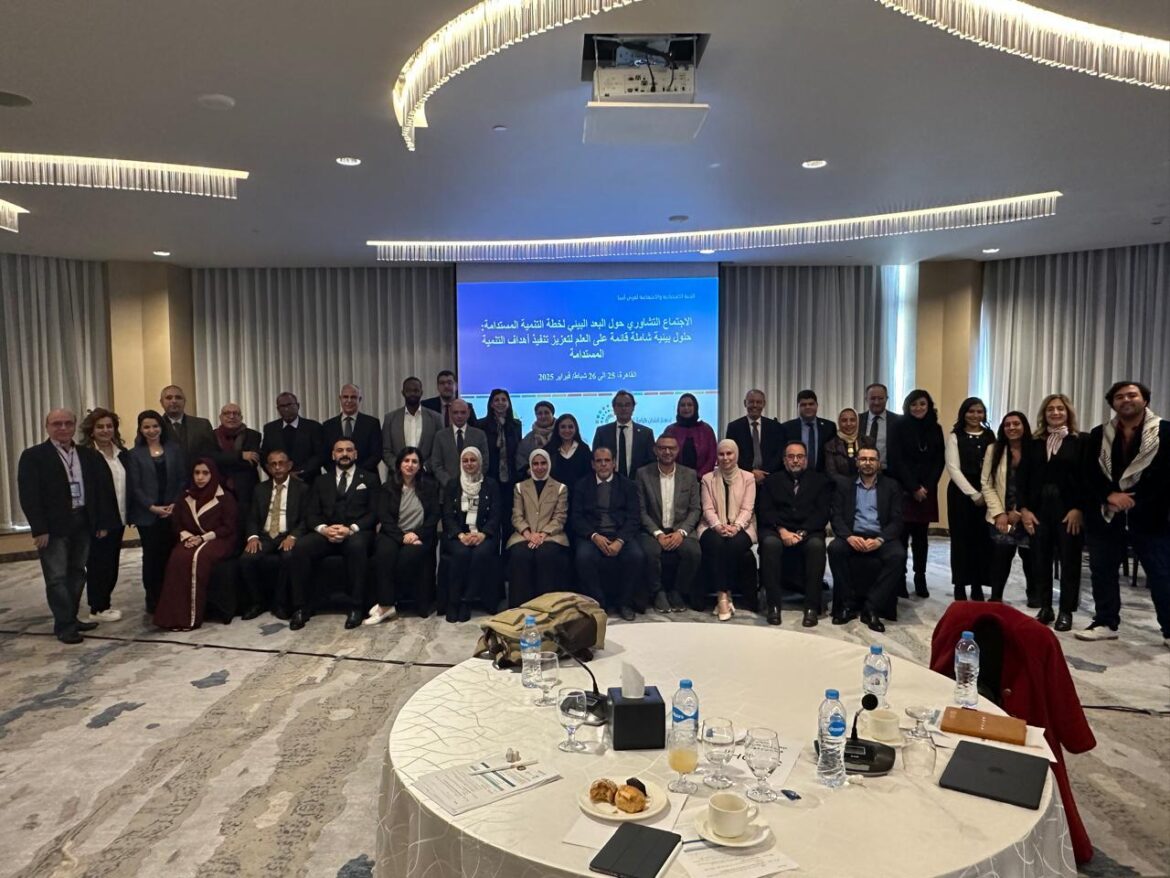Cedare – Centre for Environment & Development for the Arab Region & Europe, with its growing expertise in gender-related issues, was invited to moderate the session “Goal 5 – Women’s Rights and Inclusivity for More Effective Sustainability” at the Consultative Meeting on the Environmental Dimension of the Sustainable Development Agenda. The meeting, organized by the جامعة الدول العربية – League of Arab States and United Nations Economic and Social Commission for Western Asia – ESCWA, took place in Cairo, Egypt, on February 25–26, 2025.
The session was moderated by Dr. Amr Abdel-Meguid, CEDARE’s Regional Programme Director of the Environmental Governance Programme (EGP).
Key Highlights
The consultative meeting aimed to enhance regional approaches to implementing the Sustainable Development Goals (SDGs) under review in 2025, namely:
• SDG 3 – Good health and well-being
• SDG 5 – Gender equality
• SDG 8 – Decent work and economic growth
• SDG 14 – Life below water
• SDG 17 – Partnerships for the Goals
This year’s regional consultation placed a strong emphasis on environmental solutions for advancing the 2030 Agenda in the Arab region, addressing progress, challenges, and opportunities related to the SDGs under review.
Women’s Role in Environmental Sustainability
The session highlighted the significant yet often underrecognized role of women in environmental sustainability, particularly in rural areas of the Arab region. Women are at the forefront of resource management, engaging in water collection, agriculture, and food production and processing. These responsibilities make them especially vulnerable to environmental challenges, including water scarcity, land degradation, and climate change.
Additionally, women employed in agriculture—particularly in economically disadvantaged rural areas—face limited access to land and agricultural assets. This presents a major challenge in regions where economic activity heavily depends on land-based resources.
Exploring Innovative and Inclusive Solutions
The discussion emphasized the importance of empowering women as agents of change by enhancing their access to:
• Solar energy to support sustainable livelihoods
• Mobile services for better access to market and financial resources
• Financial services to improve economic opportunities
• AI-driven tools to optimize resource management and agricultural productivity
By integrating these innovative solutions, the session underscored the need for inclusive policies that alleviate women’s burdens while fostering their leadership in addressing environmental challenges.
![]() Download the Arab Sustainable Development Report 2024 (ASDR 2024): https://www.unescwa.org/…/arab-sustainable-development…
Download the Arab Sustainable Development Report 2024 (ASDR 2024): https://www.unescwa.org/…/arab-sustainable-development…
